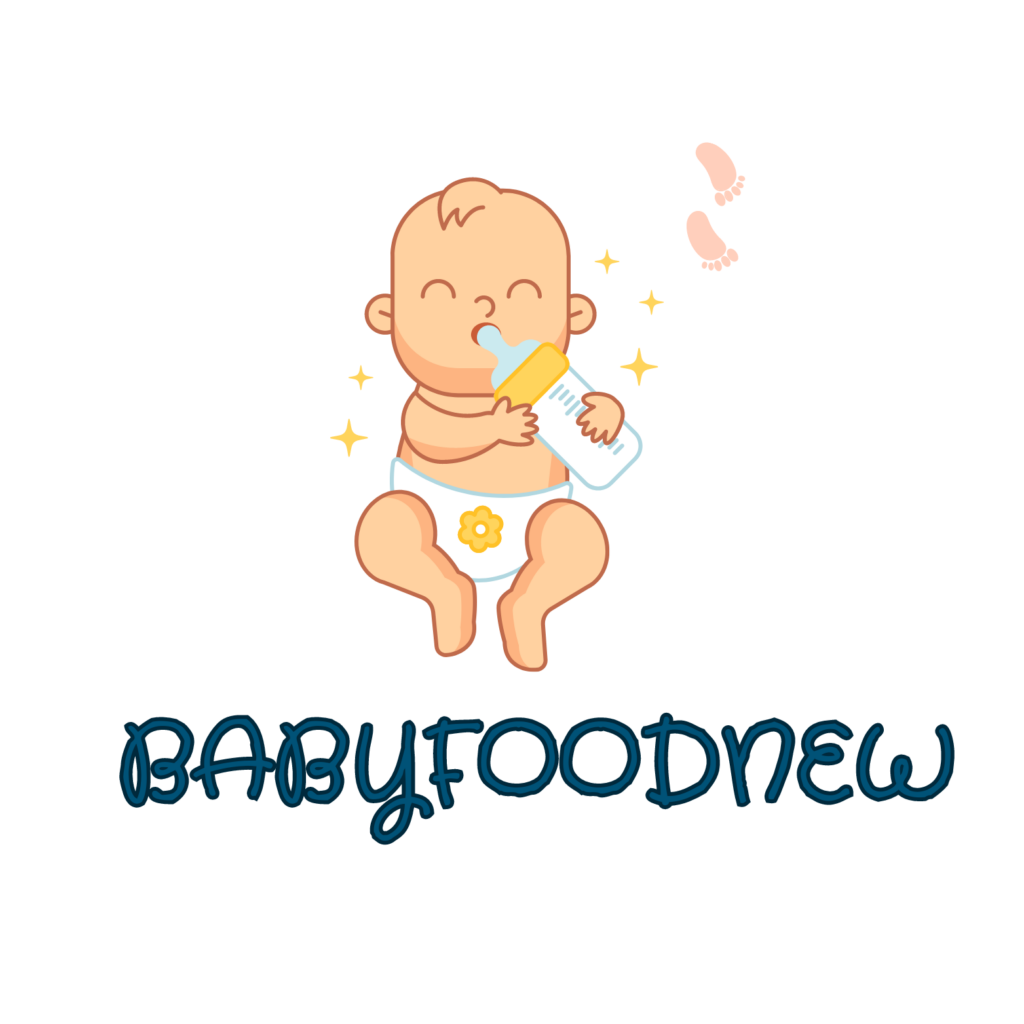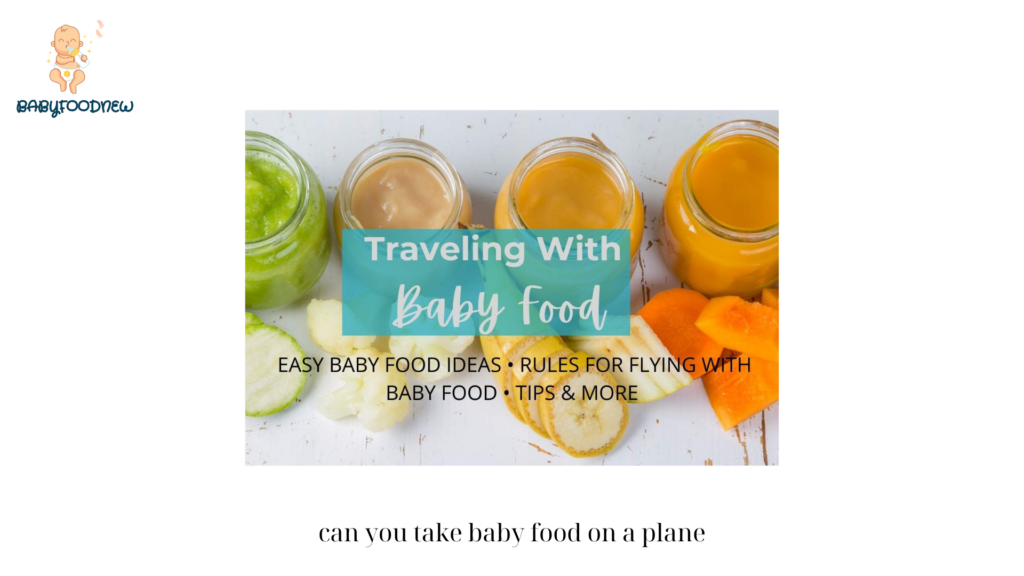Traveling with a baby can be an exciting and sometimes challenging experience. As a parent, you want to ensure that your little one is well-fed and comfortable throughout the journey. If you’re wondering about the rules and regulations regarding bringing baby food on a plane, you’ve come to the right place. In this article, Babyfoodnew will explore the guidelines and restrictions associated with can you take baby food on a plane? Taking baby food on a plane, providing you with the information you need for a smooth travel experience.
Can You Take Baby Food on a Plane: Guidelines and Restrictions
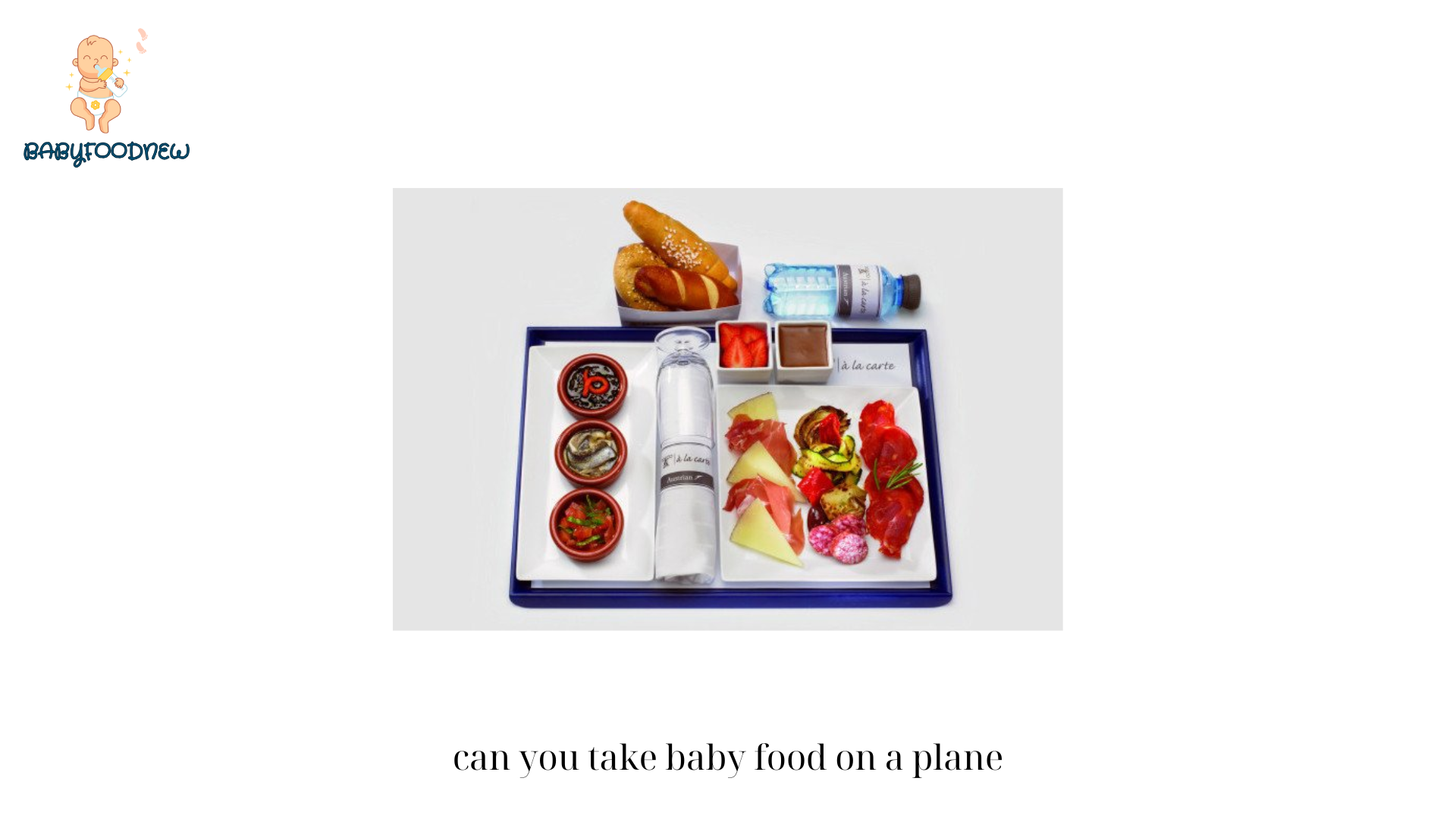
- Understanding the Importance of Baby Food During Travel:
When can you take baby food on a planeembarking on a flight with a baby, it’s crucial to have an adequate supply of baby food to meet their nutritional needs. Babies have specific dietary requirements, and maintaining their feeding routine is essential for their well-being and comfort. Whether you’re breastfeeding, formula-feeding, or introducing solid foods, having access to baby food during the journey can help ensure that your little one stays nourished and content. - Types of Baby Food Allowed on a Plane:
The Transportation Security Administration (TSA) allows parents to bring can you take baby food on a plane, but there are certain restrictions to keep in mind. Generally, the following types of baby food are allowed:a. Breast Milk: Breast milk is exempt from the usual liquid restrictions imposed on other passengers. You can bring breast milk in quantities exceeding 3.4 ounces (100 milliliters) in your carry-on bag. However, it’s advisable to inform the security officer at the checkpoint and be prepared for additional screening.b. Formula: If you’re formula-feeding your baby, you can you take baby food on a plane bring powdered or liquid formula in your carry-on bag. The TSA allows amounts exceeding 3.4 ounces (100 milliliters). Again, it’s recommended to declare these items at the security checkpoint for smoother screening.c. Jarred Baby Food: Sealed, commercially produced jarred baby food is generally allowed in your carry-on bag. It’s important to note that can you take baby food on a plane the total volume of all liquids, gels, and aerosols, including baby food, should fit within a quart-sized, clear plastic bag as per the TSA’s 3-1-1 rule.
d. Homemade Baby Food: If you prefer to make your own can you take baby food on a plane, it’s permissible to bring it on the plane. However, keep in mind that the same restrictions apply regarding the total volume and packaging requirements.
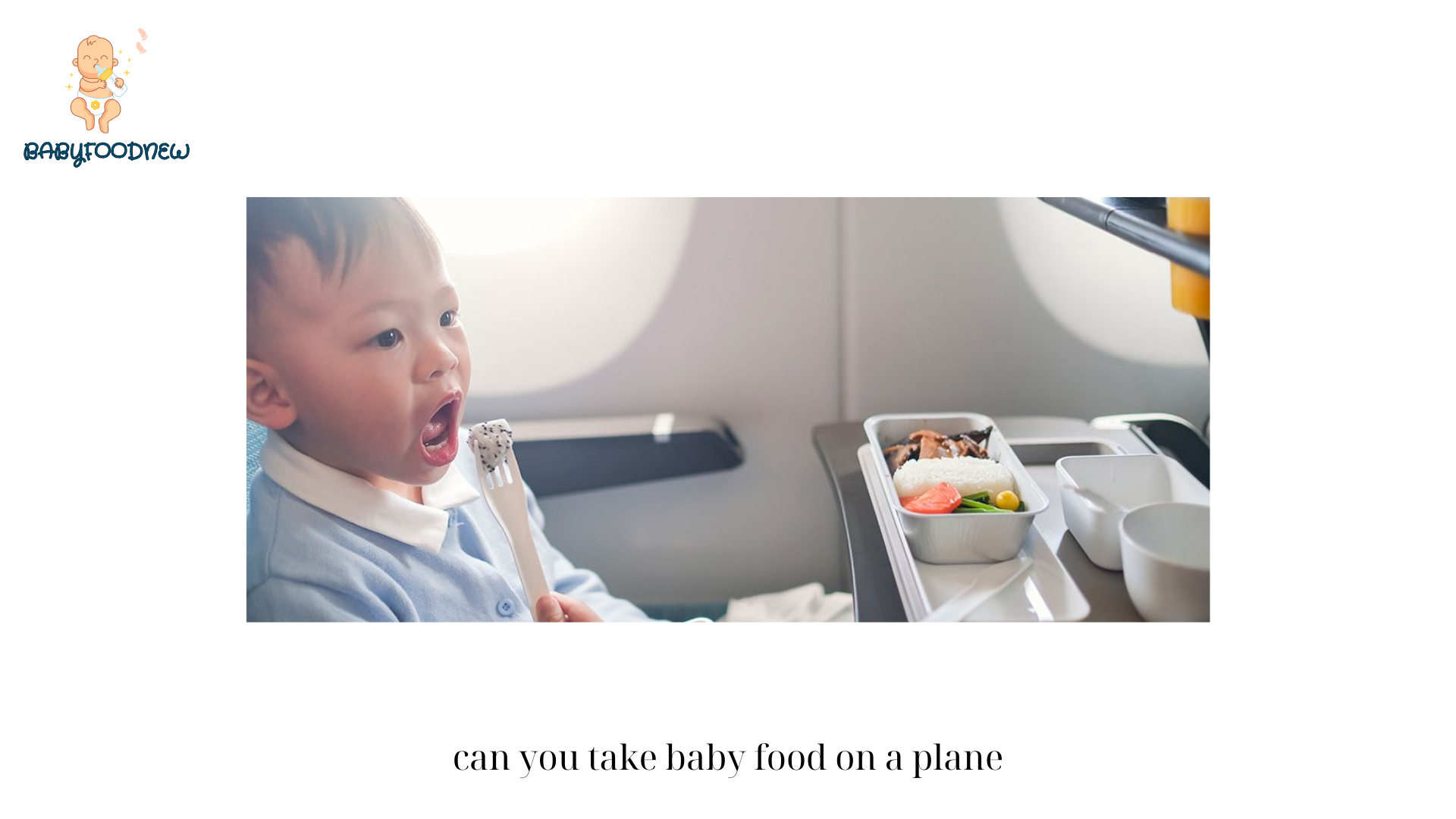
- Packaging and Storage Guidelines:
To facilitate the security screening process, it’s advisable to pack can you take baby food on a plane in a way that is easy to inspect. Here are some packaging and storage guidelines to consider:a. Separate Containers: If possible, pack baby food in separate containers or pouches. This allows for quicker and more efficient screening, as the security officers can easily identify the contents.b. Transparent Packaging: Consider using transparent containers or bags for can you take baby food on a plane. This makes it easier for security officers to visually inspect the items without needing to open them.c. Sealable Bags: Place can you take baby food on a plane containers or pouches in sealable plastic bags to prevent any potential leaks or spills. This helps keep other items in your carry-on bag clean and organized.
d. Cooling Packs: If you’re carrying perishable baby food, such as homemade purees or yogurt, you may need to use cooling packs to keep them at a safe temperature during the flight. Check with your airline regarding any specific requirements or restrictions.
- Security Screening Process:
When you reach the security checkpoint, inform can you take baby food on a plane the officer that you have baby food in your carry-on bag. This will help them provide you with the necessary instructions and ensure a smooth screening process. Be prepared for additional screening, which may involve opening containers or performing a swab test on the baby food. - Additional Considerations for International Travel:
If you’re traveling internationally, it’s important can you take baby food on a plane to familiarize yourself with the specific regulations and restrictions of the destination country. Some countries may have different rules regarding the importation of baby food or may require additional documentation. Check with the relevant embassy or consulate of your destination to ensure compliance with their regulations. - Baby Food Options at Airports and Onboard:
In addition to bringing your own supply of can you take baby food on a plane, it’s worth considering the availability of baby food options at airports and onboard the aircraft. Many airports have convenience stores or baby care facilities that offer a variety of baby food brands and options. Some airlines also provide baby food or can assist with warming bottles or jars upon request. However, it’s always a good idea to have your own supply of baby food, as availability can vary. - Planning Ahead and Being Prepared:
When traveling with a baby, can you take baby food on a plane it’s essential to plan ahead and be prepared. Consider the duration of the flight, layovers, and any potential delays when packing baby food. Pack more than you anticipate needing to account for any unexpected circumstances. It’s also advisable to bring feeding utensils, bibs, and wipes to facilitate feeding and maintain cleanliness. - Consulting with the Airline:
If you have any specific concerns orquestions regarding bringing baby food on a plane, it’s recommended to consult with your airline directly. Airlines may have their own policies and guidelines, so it’s always best to seek clarification beforehand to ensure a hassle-free travel experience.
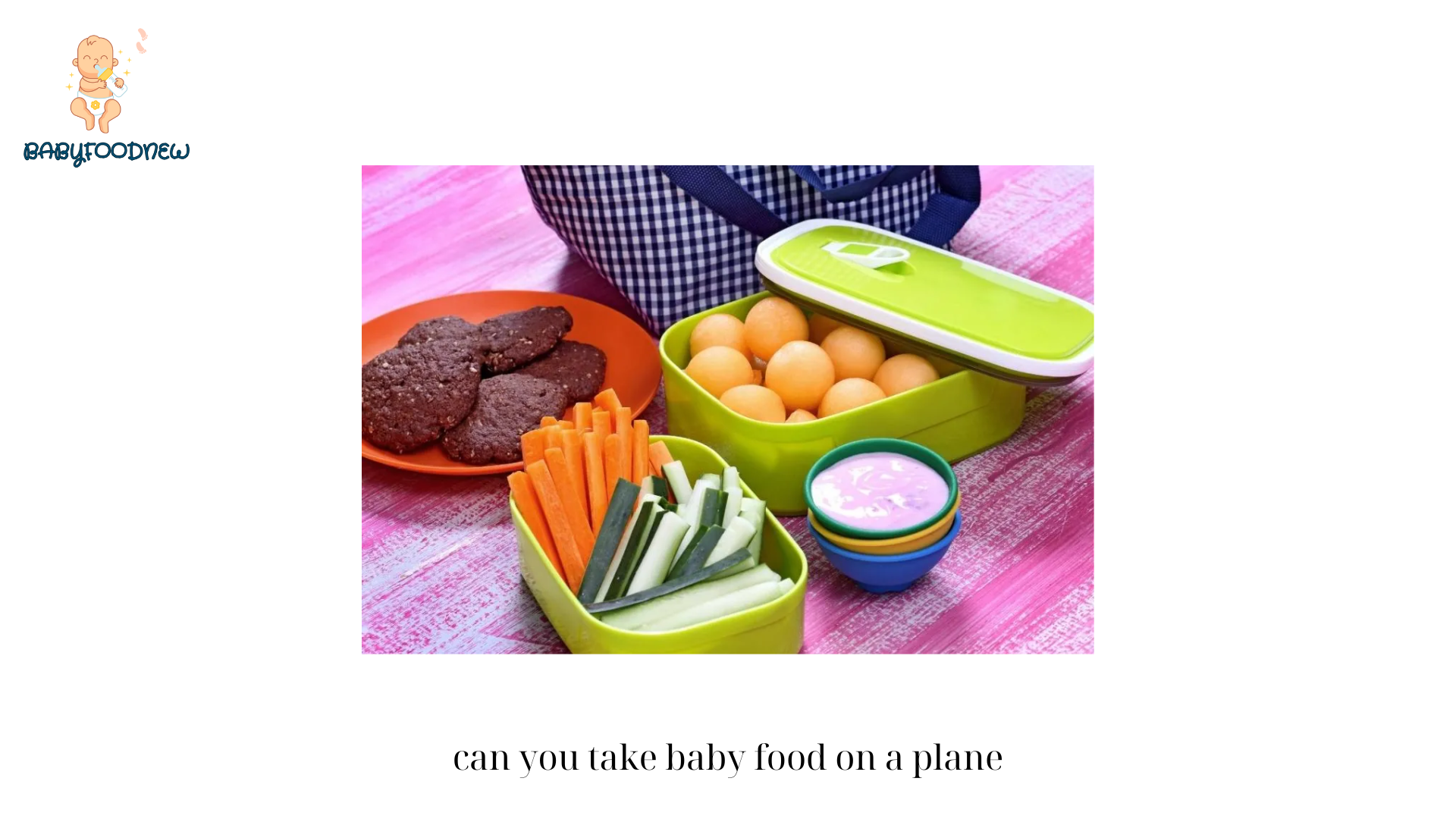
In conclusion, can you take baby food on a plane you are allowed to bring baby food on a plane, but there are guidelines and restrictions to follow. Breast milk, formula, jarred baby food, and homemade baby food are generally permitted in your carry-on bag. It’s important to pack and store the baby food properly and be prepared for additional screening at the security checkpoint. International travelers should also be aware of the specific regulations of their destination country. By planning ahead and being informed about the rules, you can ensure that your baby stays well-fed and comfortable during your journey.
